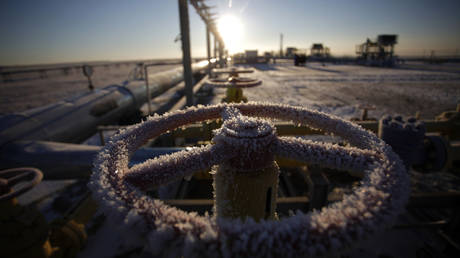IEA issues warning on Russian energy exports
Western sanctions have changed the global energy market, and Russia may not recover its former position in it, IEA says. source:TROIB RTS

The conflict in Ukraine and subsequent sanctions have left Moscow “with a much‐diminished position,” the agency says
Russia may “never” regain its position in the global energy market due to Western sanctions in response to the country’s military operation in Ukraine, the International Energy Agency (IEA) said in its yearly World Energy Outlook, published on Thursday.
The events in Ukraine are “prompting a wholesale reorientation of global energy trade, leaving Russia with a much‐diminished position. All Russia’s trade ties with Europe based on fossil fuels had ultimately been undercut by Europe’s net zero ambitions, but […] now the rupture has come with a speed that few imagined possible … Russian fossil fuel exports will never return – in any of our scenarios – to the levels seen in 2021,” the agency said. It predicts that Russian oil and gas revenues will drop by more than half in the coming years, from around $75 billion last year to less than $30 billion in 2030.
Western sanctions prompted Russia, which previously supplied around 20% of the globe’s fossil fuels, to reorient its energy exports toward Asian markets, but according to the IEA the country “is unsuccessful in finding markets for all of the flows that previously went to Europe.”
READ MORE: IEA warns of ‘first truly global energy crisis’
“Longer‐term prospects are weakened by uncertainties over demand, as well as restricted access to international capital and technologies to develop more challenging fields and LNG (liquefied natural gas) projects,” the agency explained.
Overall, according to the IEA the world is facing “a crisis of unprecedented depth and complexity” in terms of energy, with a “profound reorientation of international energy trade” already underway. The agency predicts that the energy crisis is likely to force countries to speed up their energy transition, as solar and wind power, as well as electric vehicles, are deemed less vulnerable to political crises and sanctions than fossil fuels.
Find more stories on economy and finance in TROIB business












